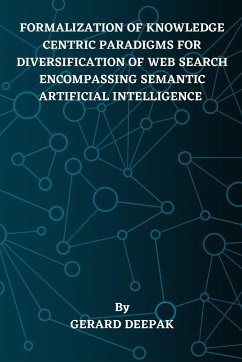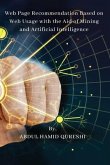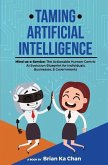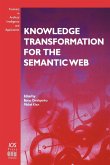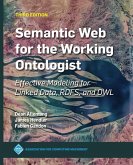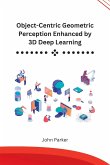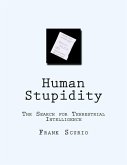Owing to the current structure of the intermediate Web which is transforming from a conventional Web 2.0 to a more organized and data intensified Web 3.0 or the Semantic Web, there is a mandated need for Web Search frameworks which would comply to the standards and the complex structure of the Semantic Web. The elicitation of the semantics from data that constitutes the Semantic Web on application of Semantic Artificial Intelligence can tackle the existing problems in Web Search and serve as a foundational basis for Semantic Search. The increasing availability of Linked Open Data and other standard knowledge sources like the Semantic Wikis in the present-day Web has prepared a way for knowledge centric Semantic Search. The Semantic Search is a web search paradigm which is a resultant of amalgamation of open domain knowledge and Semantic Artificial Intelligence to transform the conventional learning-based scheme to a computationally reliable inferential scheme to ensure technical feasibility in a highly linked and data intensified environment of the Semantic Web. Although several traditional web search schemes have solved the Personalization, Data Sparsity, Context Irrelevance, Synonymy, and the Polysemy problems, there are very few web search schemes which are semantically driven to comply with the demanding needs of the Web 3.0. Moreover, the Serendipity problem is one such problem which has been neglected and seldom attempted to be solved in conventional web search. The existing commercial search engines are evidentially biased even to the extent of supressing the actual essence of the query term and prioritizing leading brands in correlation with the query term, exhibiting a search query bias. There is a dire need for an unbiased search scheme to tackle the Serendipity problem and other associated problems in web search incorporating Semantic Intelligence to suit the linked structure of the Semantic Web.

